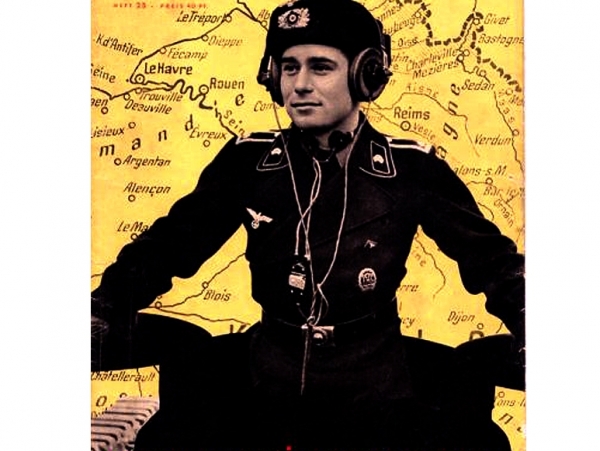 "The Maginot Line will permit calm French mobilization, experts say, in the event of a crisis. It may be noted, from a study of these forts on a map, that the chief point of concentration is approximately opposite the reoccupied Rhine zone. The Paris newspaper, Le Soir, says that no army can break down the Maginot Line."
Click here to read an article about French confidence in the Maginot Line.
Click here to read about the German concept of Blitzkrieg.
"Probably never before has a country with three quarters of its army intact and the majority of its civilian population untouched by war surrendered so completely...In Tours, I ran into a French staff officer I had met on a trip to the Maginot Line in the quieter days of the war. It seemed incredible that then we had believed those fortifications would render France invincible. As we waited in a traffic jam, he told me the real story of the Ninth Army, which held the section adjoining the end of the Maginot Line, and which broke with such disastrous results..." Attached is an article by the noted war correspondent Frederick Palmer (1873 - 1958) who observed the French and British as they attempted to hold-off the Nazi juggernaut of 1940. In this article, Palmer referred a great deal to walking this same ground with the American Army during the 1914 - 1918 war just twenty-one years earlier; he found the French to be confident of a decisive victory. The column is complemented by this 1940 article which reported on the wonders of "Blitzkrieg" and the fall of France.
An article by military historian and biographer Fairfax Downey (1894 - 1990) concerning the unique manner of mechanized warfare that the Germans had introduced to the world during the opening weeks of the Second World War:
"Thunder rumbles, lightening flashes and strikes. Incredibly swiftly it is over. So, compared to the campaigns of the First World War, was the German Blitzkrieg, rumbling, flashing and striking down Poland, Norway, Holland, Belgium, and France. How did it work? What made it click?"
Click here to read more about the nature of Blitzkrieg. "Paris belongs to Adolf Hitler. Abandoned by the French and declared an open city to prevent its destruction, the capital of France was turned over whole to the Nazi invaders early this morning."
Click here to read about the 1944 liberation of Paris.
"The man who once peddled cleaning fluids on the crooked back streets of Vienna, today was preparing to march as conqueror into Paris beneath the arch built to commemorate the triumphs of Napoleon Bonaparte." |
MORE ARTICLES >>> PAGE: * 1 * 2 * 3 * 4 * 5 * 6 * > NEXT |
|